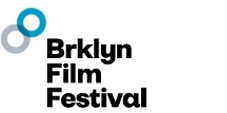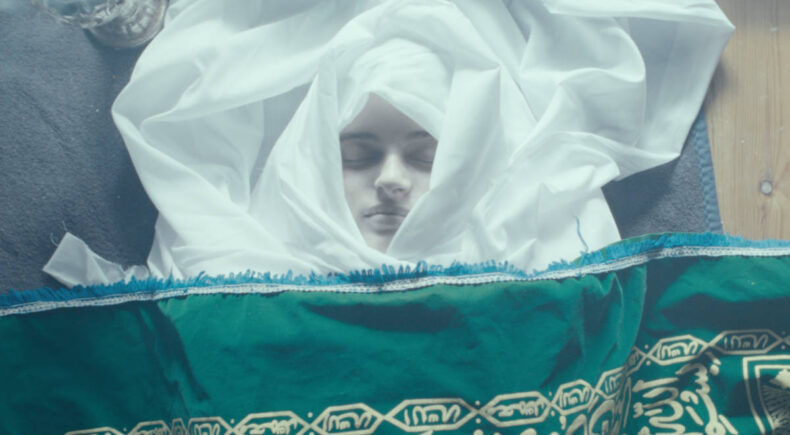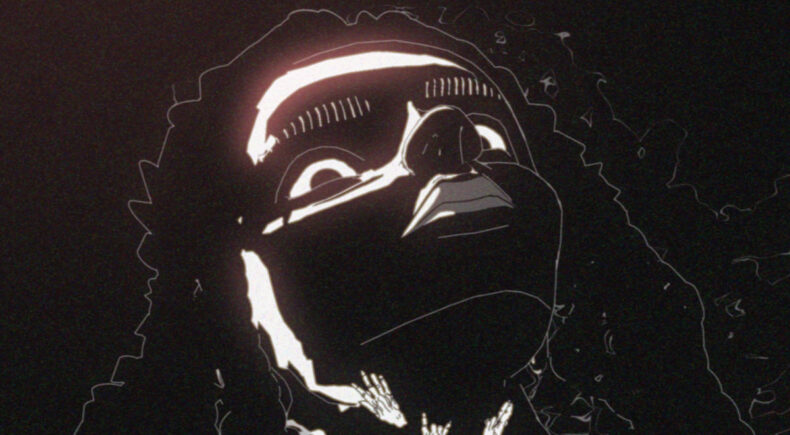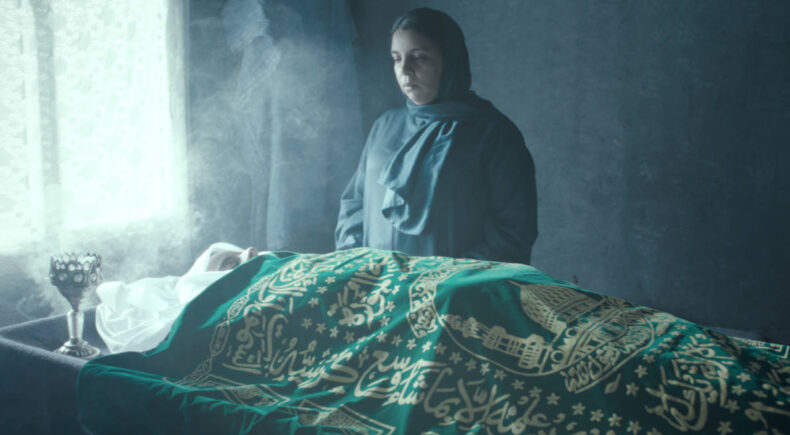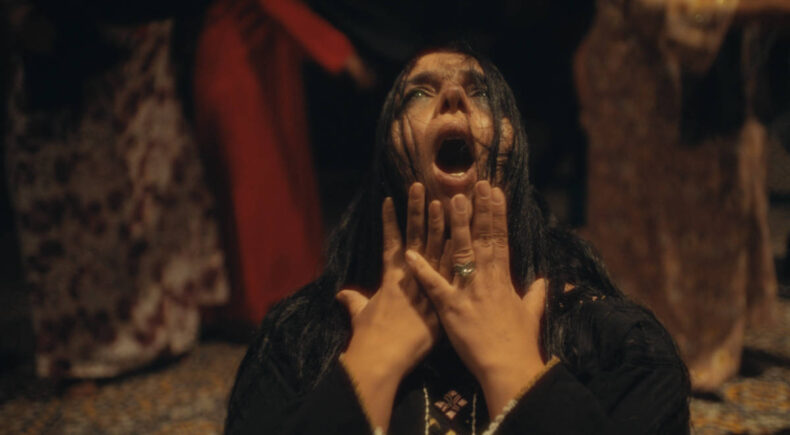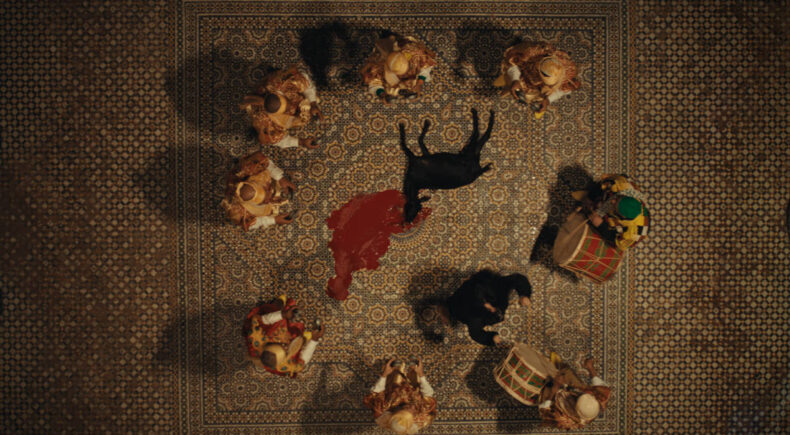Aicha
Director: Sanaa El Alaoui
Cast:Hind Dafer - Manal Bennani - Mohamed Amine Kihal
Crew:Writers: Sanaa El Alaoui. Producer: Piotr Kaczorowski. Photography: Oskar Jan Król. Production Design: Nabil Ghaouat.
Email:elalaouisanae436@gmail.com
Synopsis
A 17-year-old girl struggles with an emotionally distant mother as her life takes a tragic turn. The mother joins a mystic ceremony to face her grief and the lost bond with her daughter.
About the director
Moroccan director and screenwriter Sanaa El Alaoui is a graduate of Eötvös Loránd University in Budapest, where her research on the art of the long take in filmic language earned her the Best Thesis of the Year award, and the University of Oxford, where she explored Moroccan cinema’s evolution from the colonial past to the post-colonial present. El Alaoui made her directorial debut with Icarus, a Hungarian short documentary that garnered widespread acclaim. The film received the Bronze Award for Best Short Documentary at the 4th Quarter of the Queen Palm International Film Festival in California, Best Short Documentary at the International Film Festival of Oued Noun, the Grand Prize for Best Short Film at the National Film Festival of Cinema of the Margin in Guercif, and the Jury Award for Best Short Film at the International Film Festival of Casablanca.
Filmmaker's note
THE VISION
“Do you know what’s the secret, mother?
Is to live the past, the present and the future, as if they were one thing.”
(the daugher in Aicha)
What if I told you that watching Aicha breaks the illusion of time’s linearity, allowing you to see life and death unfold simultaneously? The film reshapes your perception of time, inviting you to experience existence in a more fluid, cyclical way. This is nothing new, it’s how native people perceive time!
What is cinema? Festivals, films, books, theorists, psychoanalysts, essays, magazines, podcasts, TV shows, interviews—media endlessly curated in search of a definitive answer to a question that, at its core, is profoundly simple: What is cinema?
Have I found my answer with my first fiction film? I can’t say for sure. But what I can say is that I’ve come closer to understanding myself as a director.
The film is told non-linearly—not to appear cool or artistically ambiguous, but to align the form with the content. It was one of the few ways I could translate the feelings of someone who has been raped. Trauma shatters our perception of time and space; it reshapes our identities. It offers us either the chance to let go or to be reborn—and that is the journey of the daughter and her mother.
The use of animation in the film was one of the most exciting aspects of the process. The collaboration with award-winning directors Tomek Popakul and Kasumi Ozeki on the animation sequence was an unforgettable experience. They traveled all the way from Poland and Japan just to be present on set, crafting the animation sequence (which depicts the trauma of rape). Their dedication and artistry brought a unique, essential layer to the film, adding depth to a difficult and sensitive subject matter. It was truly an incredible experience to work with such talented artists who understood the emotional weight of what I was trying to convey.
Aicha is about the cyclical nature of life—where for every giving, there is a taking. The line between the real and the supernatural, the human and the animal, becomes blurred in Aicha.
The film combines three mediums—digital live-action, animation, and Super 8mm film. It also blends fiction with documentary, because I’ve never fully subscribed to the sharp divide between the two. The spiritual ceremony in the film was real; it was performed according to ritual. The Gnawa singing, the participants, the witches, and the mother’s dance and trance were all documented without acting. The actress chose to participate in this rigorous process, testing the boundaries of her craft.
(some crew members decided not to attend the Gnawa ceremony because "they can't control themselves to the Gnawa instruments").
One of the biggest challenges we faced with this film was making it a hybrid, incorporating Super 8 film. We had to bring a Super 8 camera and film all the way from Europe to Morocco, navigating complex administrative processes and making special requests to airports to avoid scanning the film. The risk was always there—what if the Super 8 footage was lost at the airport? One airport even refused to allow us to carry the film without scanning it, which I completely understood. Thankfully, the film survived the journey. We managed to bring it from Morocco to Poland for development and scanning, as Morocco doesn’t have laboratories for scanning film. It was a stressful experience, but in the end, it all came together.
Is this cinema? I don’t know—and perhaps I never will. Cinema is not a fixed definition. It’s not something that can be neatly defined. It is a constantly evolving, transforming medium, shaped by our realities, our growth, and our cultures. Cinema adapts to us, and we adapt to it.
SUICIDE A TABOO IN MOROCCO
In an Arab-Muslim context, suicide among children, adolescents, and adults in the Moroccan population, remains a taboo subject that is misunderstood and difficult to approach, as it is often perceived as “shameful” by the family and society.
My little sister's arms, legs, and neck are covered in scars—sharp, angry lines carved by a razor blade. We later discovered she had hidden a collection of razors in her small library, tucked away behind her books.
When my mother could no longer bear the silence, she broke through the cycle of secrecy and shame. She began sharing the truth about what was happening with my sister. To her surprise, many of her friends, relatives, and neighbors—all mothers—reacted with the same stunned confession:
“Oh my God, I thought I was the only one whose child was going through this.”
That moment revealed the depth of the stigma and silence surrounding mental health in our community. It became clear: the time had come for Aicha.
RELIGION IN MOROCCO (BURKA SCENE)
In Aicha, the tension between religion and spiritualism becomes a central motif, reflecting broader Moroccan societal dynamics. This theme is particularly poignant in the beach scene featuring the burka woman. As she silently exchanges looks with the protagonist, her presence evokes a witchy, almost otherworldly aura, challenging the boundaries between sacred tradition and personal spiritual awakening.
This scene draws inspiration from Ingmar Bergman’s iconic chess match between the Knight and Death in The Seventh Seal (1957). Much like Bergman’s exploration of existential dread and the human quest for meaning in a godless or silent universe, the interaction between the burka woman and the protagonist in Aicha acts as a layered metaphor.
The burka woman embodies an enigmatic force—a presence simultaneously rooted in religious symbolism and transcendent spiritualism. Her silent exchange with the protagonist mirrors the girl’s inner turmoil and defiance against oppressive systems, much like the Knight’s defiance against the inevitability of Death.
While Bergman’s scene highlights humanity’s fraught relationship with mortality and divine silence, Aicha uses the beach encounter to delve into Morocco's complex interplay of faith, tradition, and individuality. The burka woman’s gaze suggests a higher power—whether divine, mystical, or self-determined—that forces the protagonist to confront her own beliefs and the societal constraints she resists.
URGENCY
Limited Mental Health Resources: Morocco has a shortage of mental health professionals and resources. The World Health Organization (WHO) reports that the country has just 1 psychiatrist for every 100,000 people, making access to mental health services for young people particularly difficult.
RAPE – SEXUAL ASSAULT – CHILD MARRIAGE
Aicha is partly based on the real story of Amine El Filali who drank rat poison in 2012 after being forced to marry her rapist. It was after two years that the Moroccan government amended article 475 that allowed rapists to avoid prosecution by marrying their victims. However, despite this amendment, nothing changed in the country.
Over 90% of Morocco's Sexual Assault Victims Do Not Report their Experiences.

